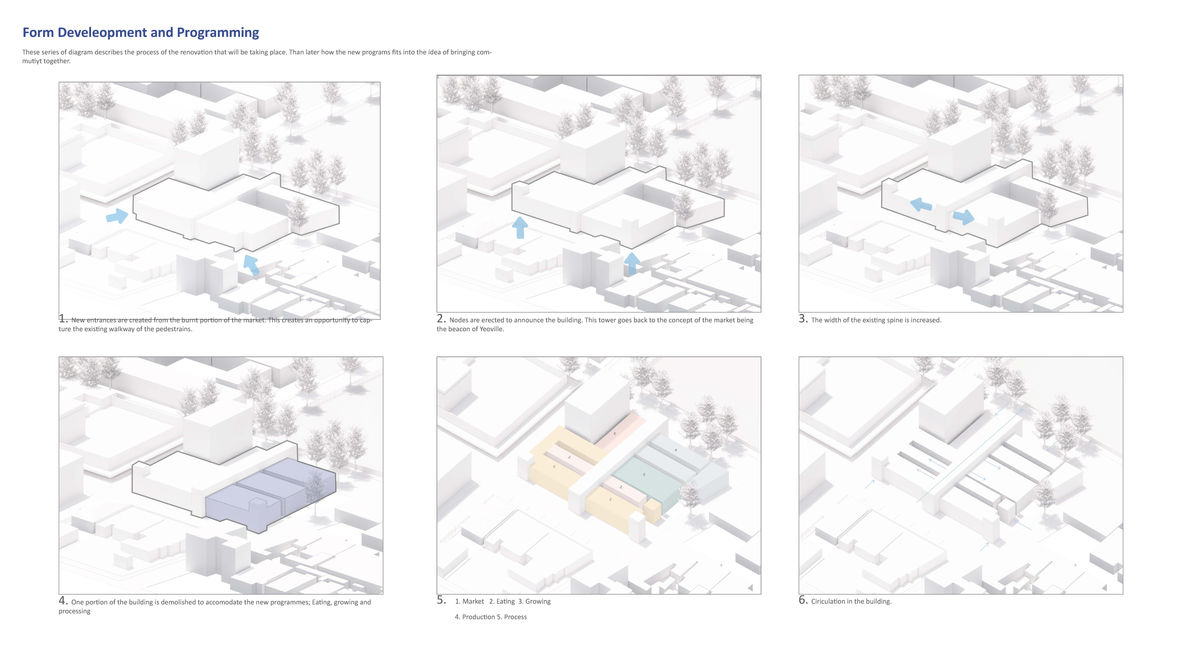


Nzoli Kubanza
Cross Border Pollination
Incubation Centre for Urban Farming in Yeoville


Yeoville holds the reputation as an Afro-migrant-centric suburb in Johannesburg ,with each
dispossessed body desiring to keep their cultures alive. This has created social boundaries
between South Africans and other African nationalities in the urban landscape. The burning
of Yeoville Market is the physical manifestation of growing tension in the community.
Gambela provides migrant women from the diaspora the opportunity to respond to the
economic crisis they face in their home country. The enclosed market sphere encourages
cultural exchange and interaction by eating, processing, and selling food from home. For
migrants living in Yeoville, food is not only a source of nutrients but a tool to transmit
culture. Thus, the burning of the market signifies the resistance of the community to integrate.
The thesis will follow the Congolese women in the Yeoville market who frequently encounter
borders, traveling with various products including cassava. The traders use cassava to
transgress the misconceptions of a patriarchal stereotype of an African housewife, simultaneously
ensuring household survival. Cassava holds a cultural significance to the West
African women as the method of processing cassava requires the knowledge of the native
women that have passed down from one generation to another, perfected through
time and across borders.
The importance of the plant not only lies in its mobility but its functional characteristics
of promoting harmony, encouraging collaboration, and a medium in which information is
transferred. In asking the question “how can cassava be used to mend the fragmented
community of Yeoville” this thesis will be using cassava as a framework to explore themes
of, mobility, boundary, and identity. Re-introducing the market to the community as an
agricultural hub. The architectural intervention will re-interpret the market as a space that
transmits and preserves culture. The project aims to mediate the fragmented communities
of Yeoville using food to educate, generate social spaces, and food works to encourage
community involvement.










